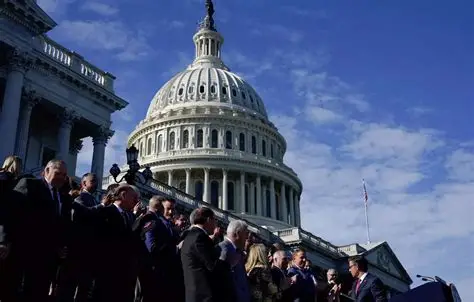The U.S. Senate on Monday approved legislation aimed at reopening the federal government, marking a decisive step toward ending the longest shutdown in American history. The measure received bipartisan backing after weeks of political deadlock, clearing the chamber with a 60–40 majority.
The breakthrough came as a small group of Democrats agreed to support the deal after mounting pressure from constituents, economic disruptions, and internal divisions within their party. The concession came despite sharp criticism from several Democratic leaders who had insisted Republicans reopen negotiations on extending key health care tax credits set to expire on January 1.
Frustrations had intensified nationwide as federal food assistance stalled, major airports grappled with operational delays, and more than 800,000 federal workers faced continued uncertainty over pay.
The House, currently on recess, is expected to reconvene within days to vote on the bill. President Donald Trump signaled his approval shortly before the Senate vote, stating the country would be “opening up very quickly,” reinforcing expectations of a swift resolution.
If the House follows suit, the shutdown, now stretching 41 days could officially close in the coming days, ending a period marked by political strain, financial setbacks for families, and cascading disruptions across government services.


